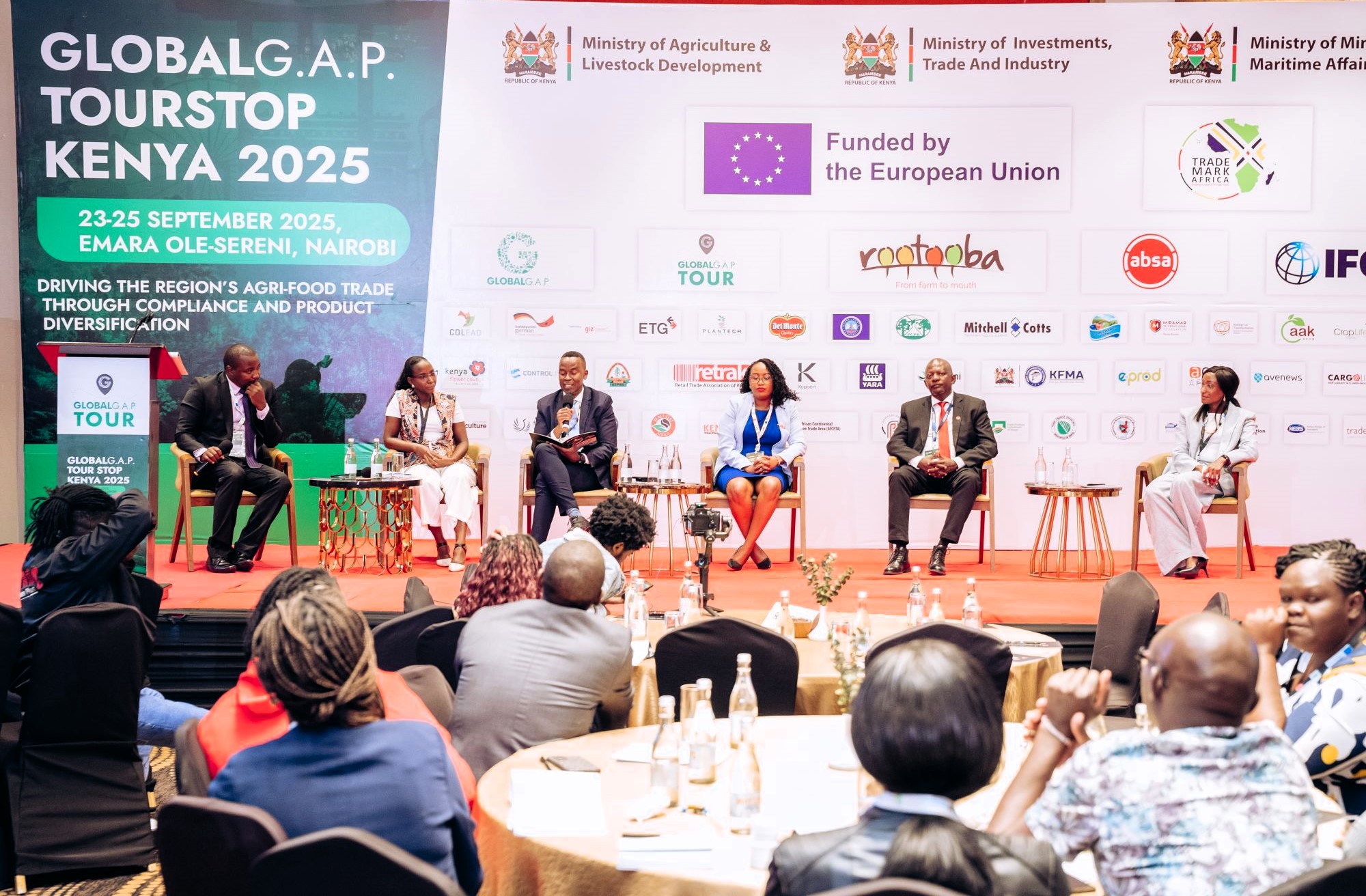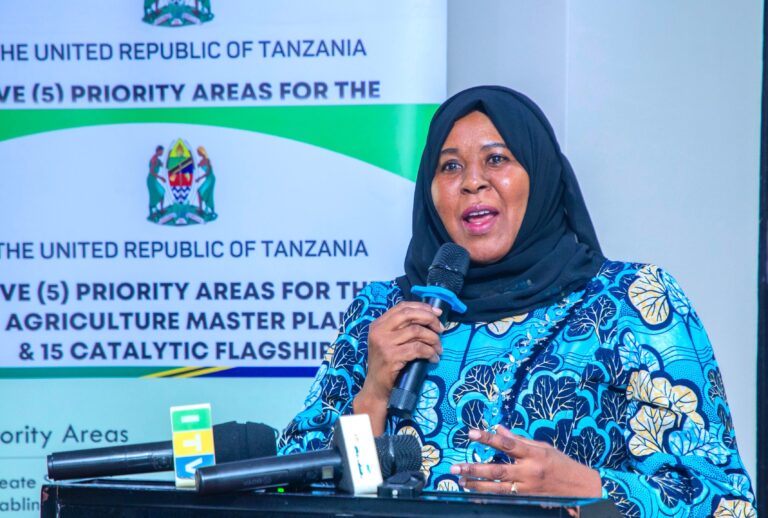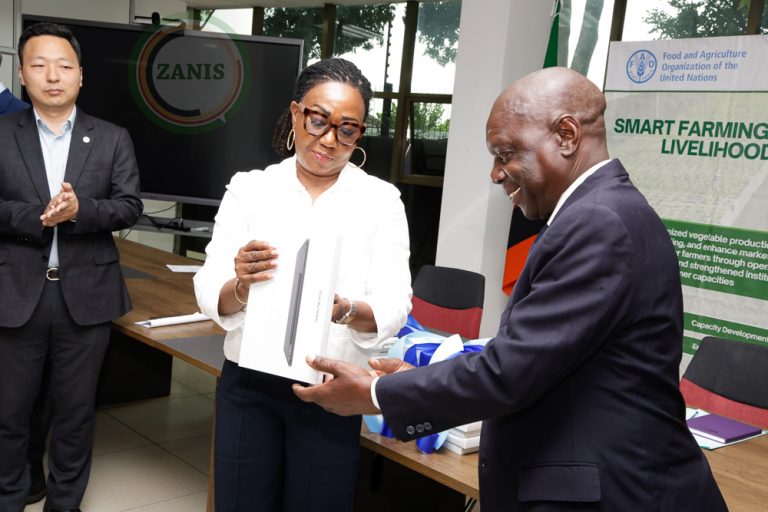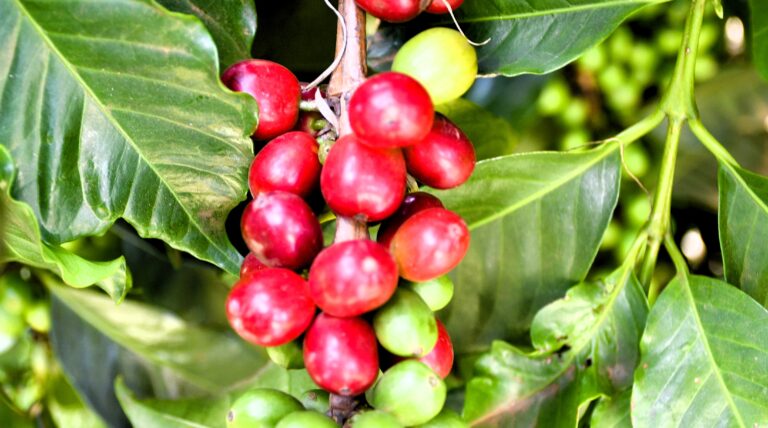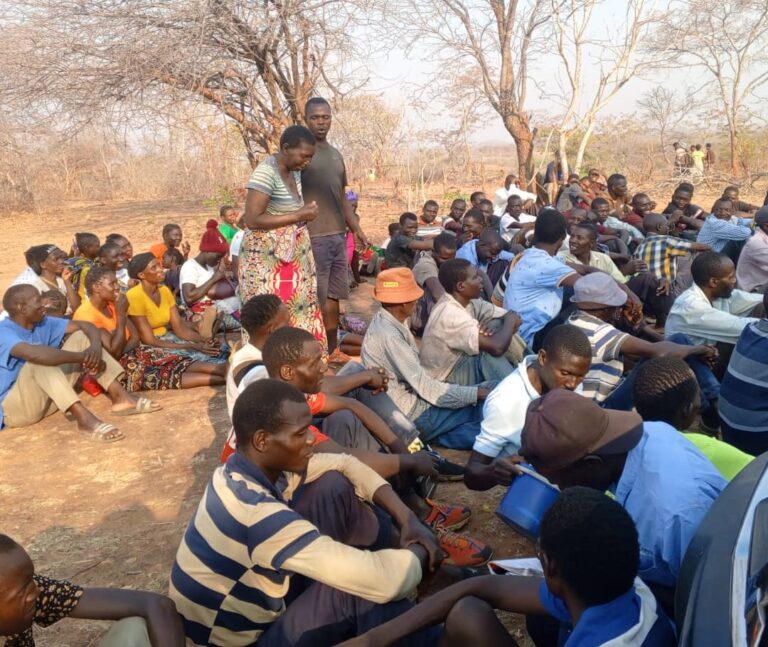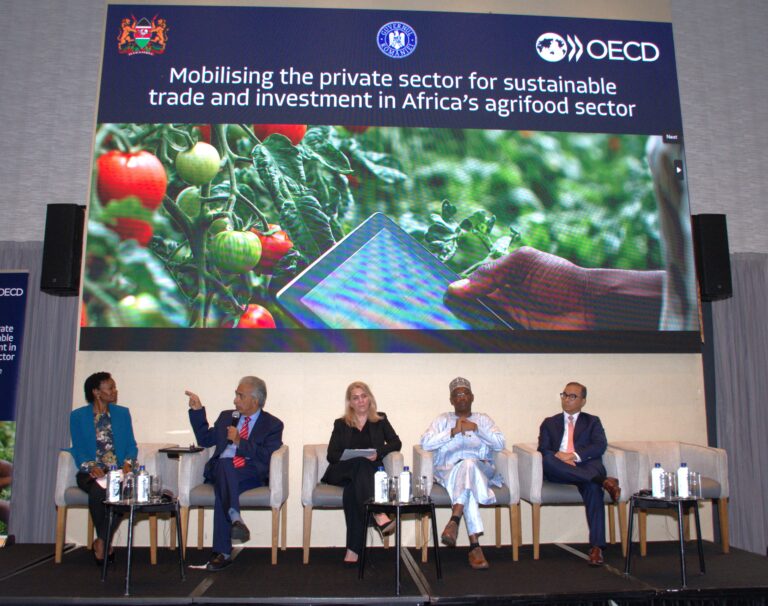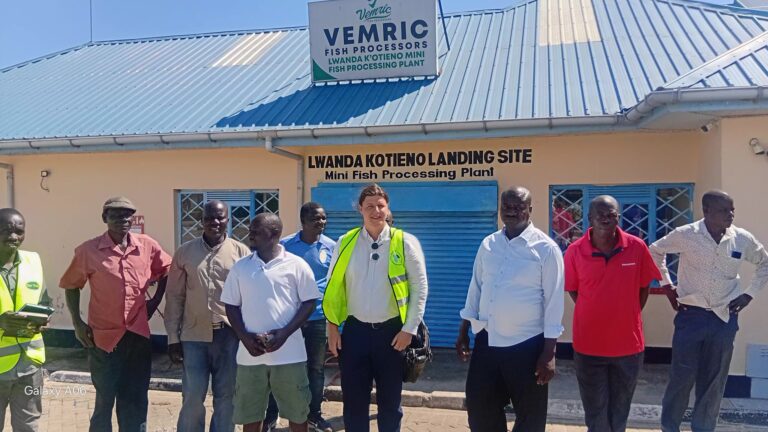By Kimuri Mwangi
The GLOBALG.A.P. Tourstop 2025 officially opened on Tuesday in Nairobi, bringing together a wide range of stakeholders from across the agri-food value chain to highlight the central role of compliance, product diversification, and harmonized regulations in boosting farmer-led growth and regional trade expansion.
Hosted by GLOBALG.A.P. and Rootooba, and sponsored by the European Union, TradeMark Africa (TMA), Absa Bank PLC Ltd, the International Finance Corporation (IFC) and other partners, the three-day event ran under the theme “Driving the region’s agri-food trade through compliance and product diversification.” It provided a platform for dialogue, knowledge sharing, and partnerships, with participants reaffirming that compliance and diversification were not just enablers but necessities for Africa’s agricultural future.
Speaking on behalf of Cabinet Secretary Lee Kinyanjui of the Ministry of Investment, Trade, and Industry, Ag. Secretary for Trade Michael Mandu underscored the need for harmonized regulations to reduce friction in regional and global markets.
“Diversifying our agricultural and food export base is not optional; it is essential for Kenya’s and Africa’s competitiveness in a changing global trade environment,” he said.
Kinyanjui urged a bold push to raise intra-African trade from the current 12 percent to 25 percent over the next decade. He pointed to government-led initiatives such as Special Economic Zones (SEZs) and County Aggregation and Industrial Parks (CAIPs), which are designed to support agro-processing and enable small enterprises to meet international standards.
The role of financing in supporting compliance and diversification was strongly highlighted. Elizabeth Wasunna, Director of Business Banking at Absa Bank PLC, reaffirmed the bank’s commitment to agriculture, noting that farmers played a central role in national development.
“We view farmers not just as food producers but as nation builders,” she said.
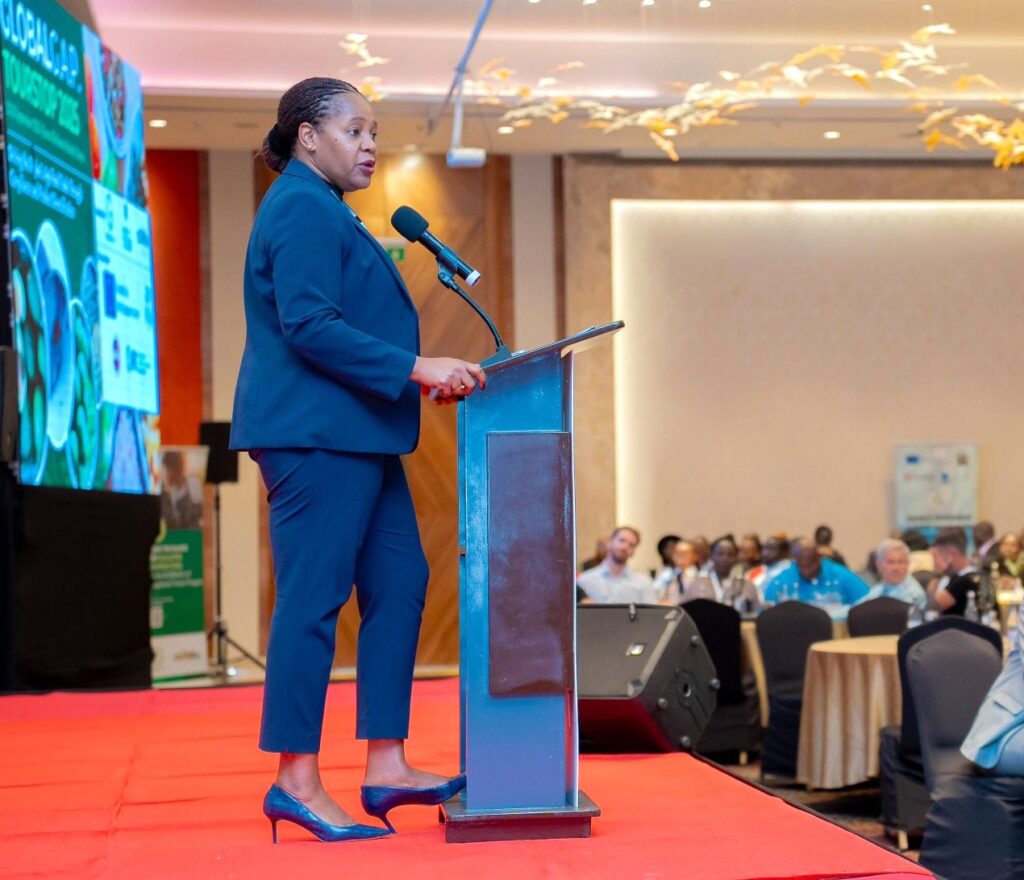
She added that Absa had pledged Ksh 100 billion to finance agriculture over five years, with Ksh 15 billion lent out in 2024 alone. Wasunna stressed that meeting international standards was critical to ensuring Kenyan produce remained competitive globally, saying standards like GLOBALG.A.P. were crucial in maintaining market access.
Robert Peck, Senior Operations Officer at IFC, stressed the importance of financing infrastructure to meet compliance needs. He added that compliance is a catalyst for trade facilitation as harmonized standards and streamlined procedures reduce costs and post-harvest losses while connecting smallholder-certified producers to global export opportunities. He pointed out that investments in packhouses, cold storage, and traceability systems were critical to unlocking market opportunities and ensuring that farmers reaped the benefits of certification.
Rootooba’s Lead, Dr. Charity Mutegi, welcomed participants while placing compliance and diversification at the centre of the discussions. “Mark that word, compliance and product diversification. And that captures both opportunity and responsibility,” she said.
Mutegi noted that Kenya’s horticultural exports had crossed USD 1.07 billion in 2024, supporting more than six million livelihoods. She argued that compliance should not be seen as a burden but rather “an investment in prosperity.”

She warned that Kenya’s overreliance on a narrow range of crops and markets posed risks to the sector, stressing the importance of diversifying both products and markets. “We have to explore what is beyond fruits and vegetables. Diversification means you can change, you can expand your scope of fruits and vegetables, you can expand to other commodities, you can think about crops for processing.”
Clement Tulezi, Secretary General of the Horticultural Council of Eastern Africa (HoCEA), emphasized the centrality of standards and perception in gaining access to markets. “We know that there is great potential within the East African region for horticultural products to hit the market, but compliance is a big issue that we have to deal with,” he said.
He pointed to ongoing innovations in traceability and integrated pest management, noting that Kenya’s national traceability system had the potential to transform how the country engaged with global markets by building trust among buyers.
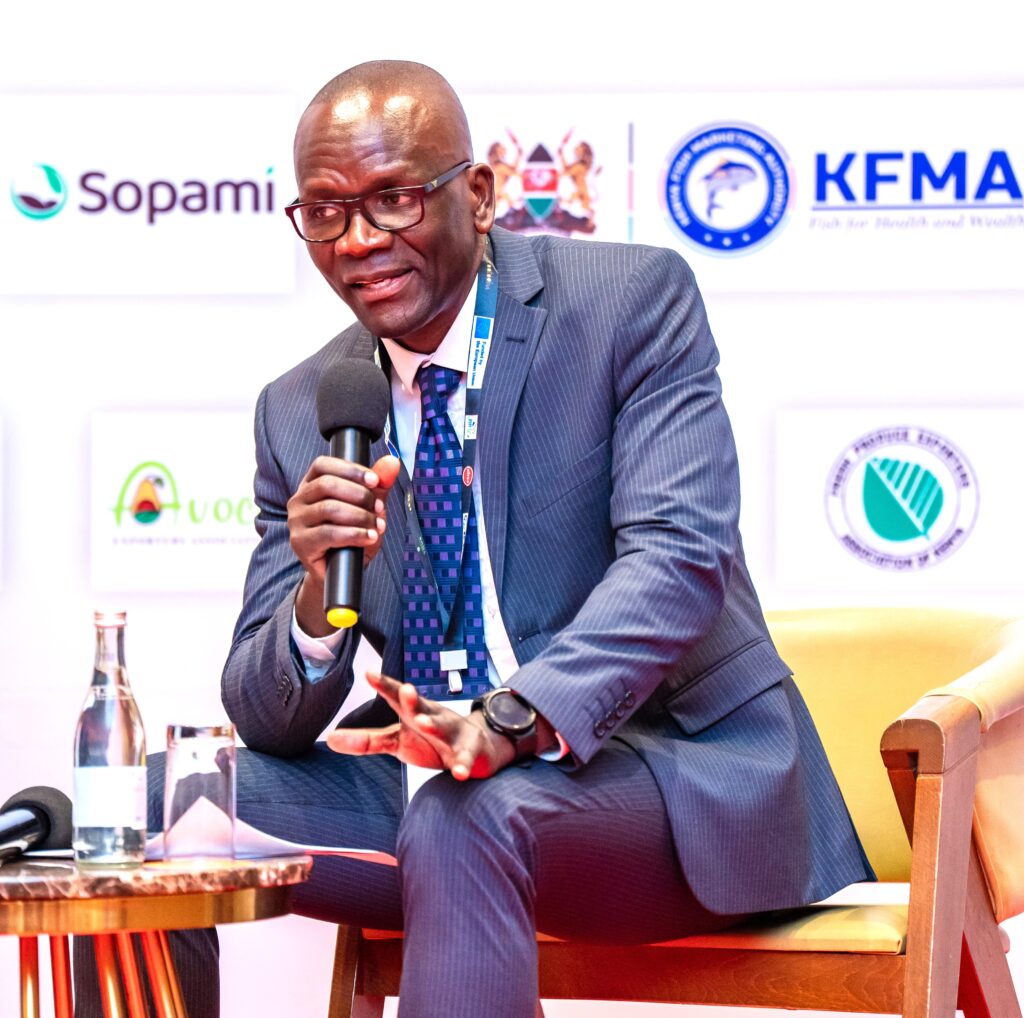
Despite rising global standards, Tulezi expressed confidence in the competitiveness of the region, saying, “I think compliance, we have no issue. It’s the in thing and everyone has to do it as it is a hallmark of our industry.” He called for greater partnerships to scale up innovation and certification across the region.
TradeMark Africa Kenya Country Director, Lillian Mwai, described compliance as a currency of trust in agri-food trade,saying it was key to securing shelf space in European supermarkets, retail chains in Dubai, and wholesale markets across Africa.
Mwai emphasized that while compliance secured livelihoods, diversification offered resilience in the face of external shocks. She referenced Kenya’s 11 percent decline in horticultural exports in 2024 as evidence of the risks of overreliance on a few markets and products.
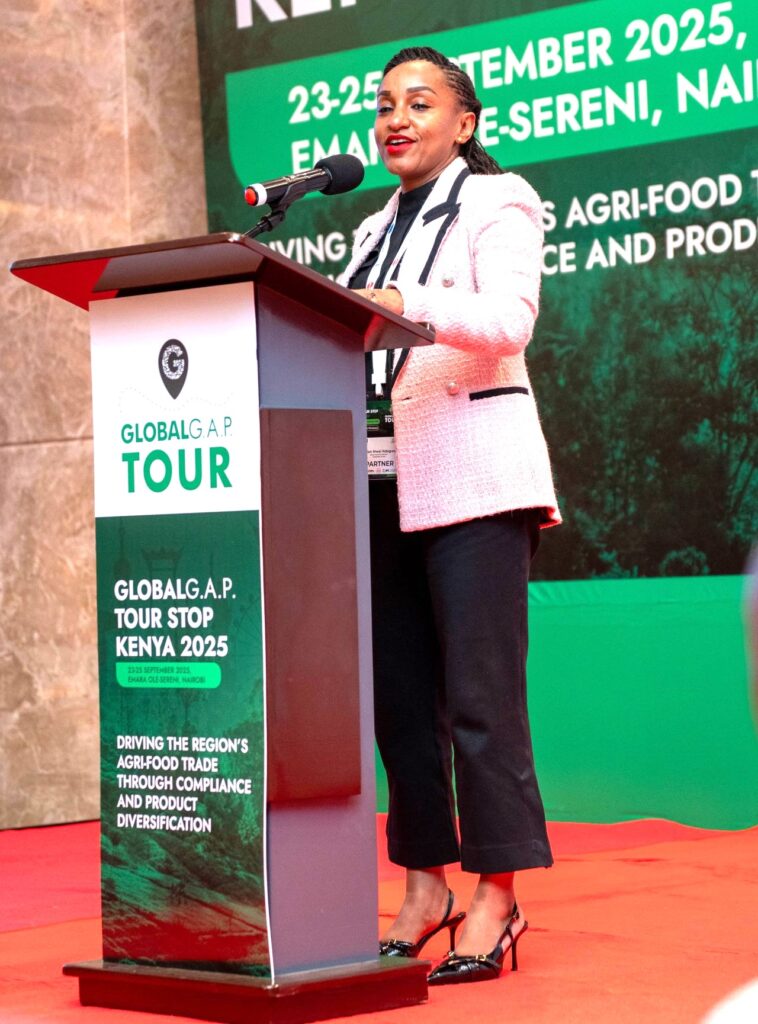
“When we move up the value chain from fresh avocados to avocado oil, from mangoes to pulp, and dried fruit, we keep more revenue in Kenya, creating jobs in processing, packaging, and logistics,” she said.
She outlined initiatives supported under the EU-funded Business Environment and Export Enhancement Programme (BEEP), which include farmer training, establishment of packhouses, and development of traceability systems for mangoes and fisheries.
Across the event, speakers reiterated a shared vision: that compliance and diversification are no longer optional, but central to Africa’s agricultural transformation. By aligning standards, scaling certification, and investing in diversification, stakeholders argued, the region could unlock new market opportunities, increase trade, and ensure that farmers benefit fully from their hard work.


